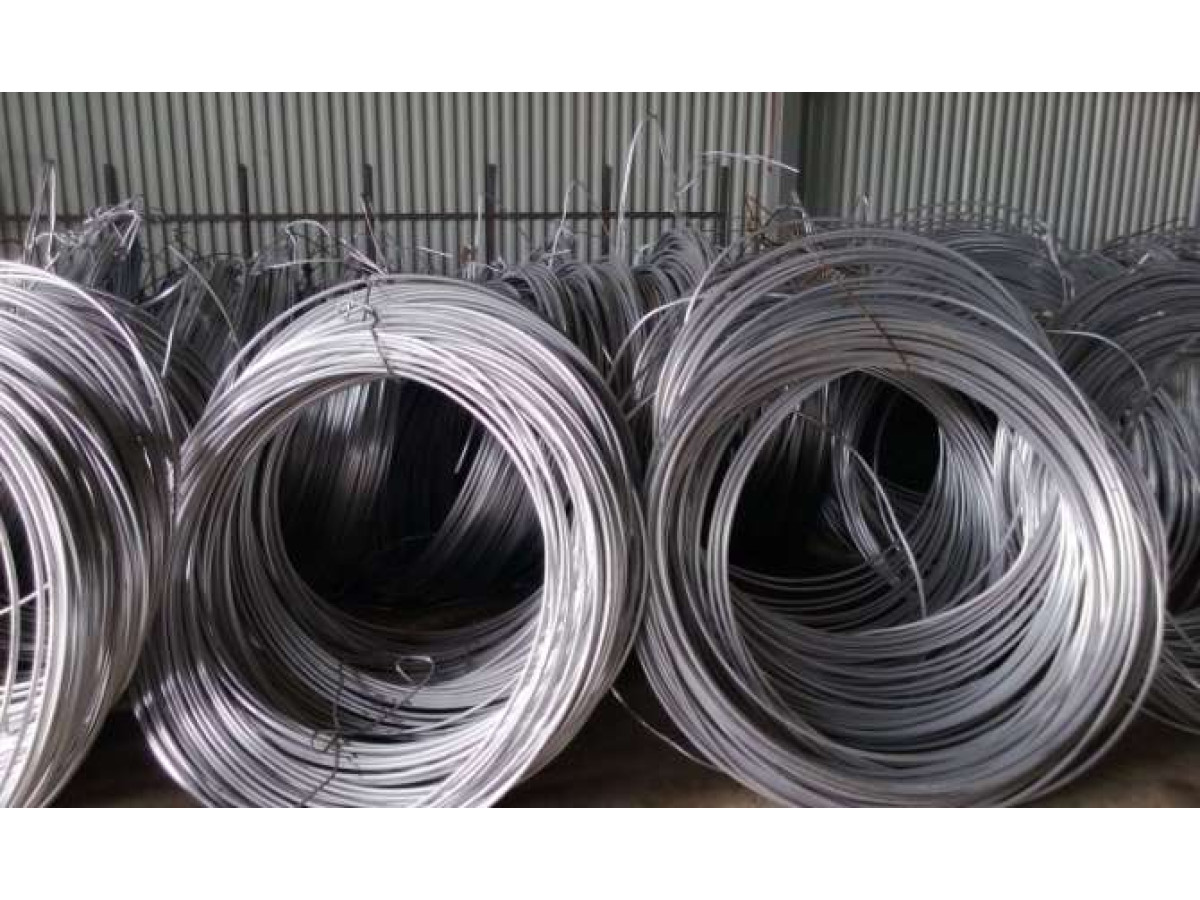Stainless steel wire is an important material widely used in various industries due to its strength, corrosion resistance and versatility. This material has many advantages and is widely used both in production and in everyday life. Let's take a closer look at this material.
Types of stainless wire
There are several types of stainless wire depending on their chemical composition and characteristics. Here are some of the most common types of stainless wire:
- AISI 304 stainless steel wire: This is one of the most common types of stainless wire. It has good corrosion resistance under various conditions, good weldability, and is widely used in industry and manufacturing.
- AISI 316 stainless steel wire: This type of stainless wire has even higher corrosion resistance compared to AISI 304 due to the molybdenum additive it contains. It is often used in aggressive environments such as seawater or chemical solutions.
- AISI 430 stainless steel wire: This wire has good oxidation resistance and is used in applications where high corrosion resistance is not required.
- AISI 201 stainless steel wire: This is a more economical option for medium quality stainless wire. It has some corrosion resistance and good machinability.
These are just some of the main types of stainless wire. When choosing the right type, you should take into account the operating conditions, strength and corrosion resistance requirements, as well as other characteristics required for a particular application.
How to choose suitable stainless steel wire?
When selecting the appropriate stainless steel wire, there are several important factors to consider that determine its properties and suitability for specific applications. Here are some key aspects to consider when choosing stainless steel wire:
- Chemical composition: Different types of stainless wire have different chemical composition, which affects their corrosion resistance, mechanical properties and other characteristics. For example, AISI 304 wire has good corrosion resistance, and AISI 316 has high chemical resistance.
- Wire Diameter and Type: The diameter of the wire determines its strength and rigidity. The choice of diameter depends on the specific application of the wire. There are also different types of wire such as round, square, rectangular and others suitable for different purposes.
- Surface Treatment: It is important to consider the type of surface treatment of the wire, as it can affect its appearance, corrosion resistance and other characteristics. For example, polished wire may be more aesthetically pleasing, while wire with a matte finish may be less prone to staining.
- Operating conditions: it is necessary to take into account the conditions in which the stainless wire will be used, such as temperature, humidity, the presence of aggressive environments or mechanical stress. Depending on this, the appropriate type of stainless wire with the required characteristics is selected.
- Certification and quality standards: When purchasing stainless wire, it is important to pay attention to the presence of quality certificates and compliance of the product with safety and quality standards in order to be confident in its reliability.
When choosing a suitable stainless wire, it is recommended to contact specialists or consultants who will help determine the best option and take into account all the necessary parameters for a specific application.
Conclusion
Stainless steel wire is one of the most common materials in industry and construction due to its outstanding properties. Its strength, corrosion resistance, flexibility and aesthetic qualities make it an ideal choice for a wide range of applications.
One of the main advantages of stainless wire is its high corrosion resistance. This material has the ability to maintain its appearance and mechanical characteristics even in aggressive environments such as sea water, chemicals or high humidity. Thanks to this, stainless steel wire is ideal for use in environments where other materials can quickly fail due to corrosion.
In addition, stainless wire has excellent strength and durability, which allows it to be used to create reliable and durable structures and products. Due to its flexibility and ease of processing, stainless steel wire can be easily bent, shaped and welded, making it a versatile material for a variety of purposes!

